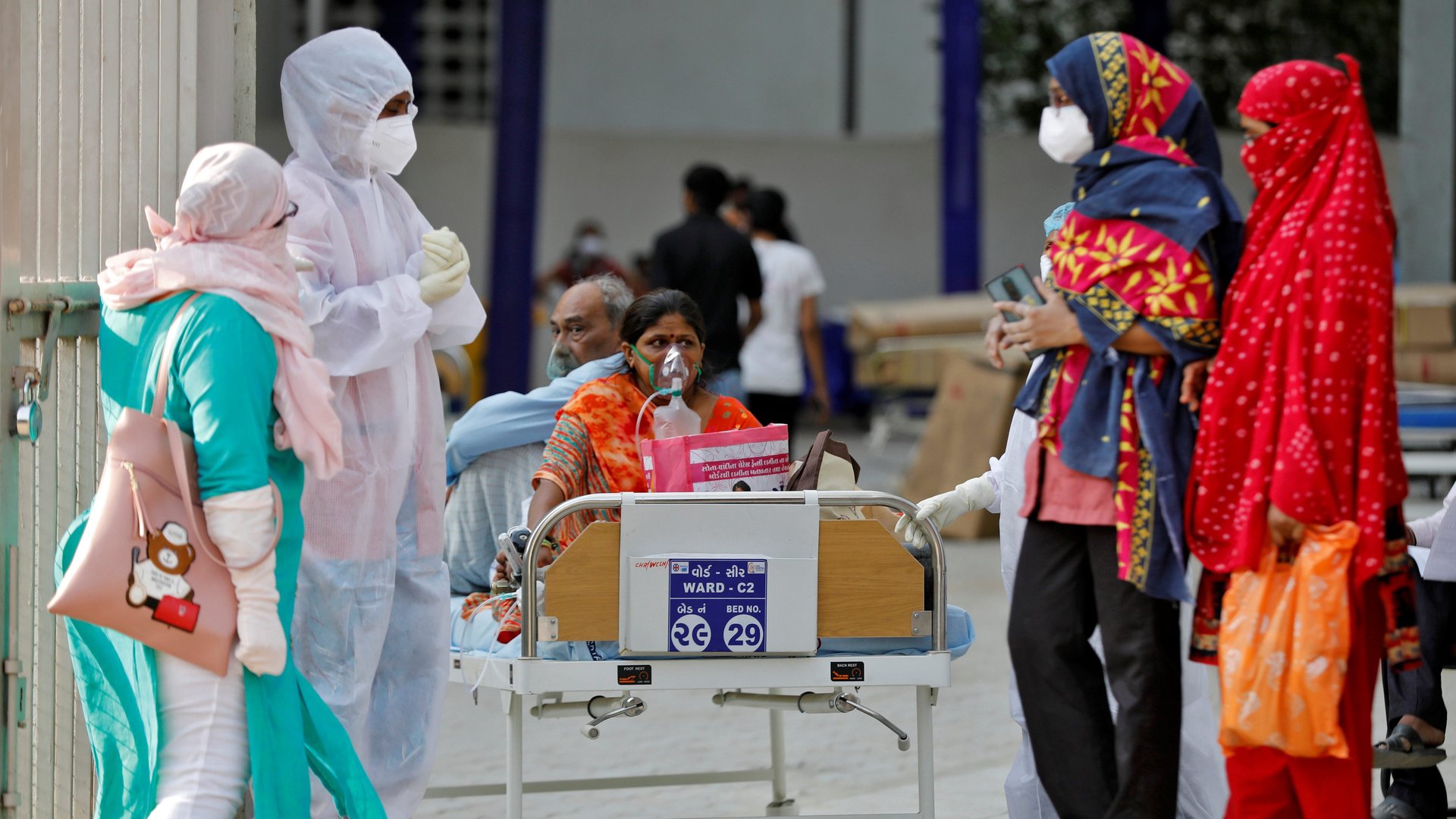The second wave of Covid-19 will deepen the bad loan crisis at Indian banks
As the second wave of Covid-19 grips India, many states in the country have enforced local-level lockdowns. In several cities, including the financial hub Mumbai and the capital city Delhi, dine-in restaurants, hotels, malls, non-essential shops, recreational public spaces, and cinema halls are either shut or are running at a lower capacity. And like last year, migrant workers have started fleeing back to their villages.


As the second wave of Covid-19 grips India, many states in the country have enforced local-level lockdowns. In several cities, including the financial hub Mumbai and the capital city Delhi, dine-in restaurants, hotels, malls, non-essential shops, recreational public spaces, and cinema halls are either shut or are running at a lower capacity. And like last year, migrant workers have started fleeing back to their villages.
This slump in economic activity brings bad news for India’s banking system, which is still struggling to recover from last year’s lockdowns. The new lockdowns could result in businesses as well as households struggling to repay bank loans, which will result in more bad loans piling on the books of Indian banks, warns global rating agency Moody’s India arm ICRA.
Retail loans unravelling
One of the biggest impacts of any lockdown is job loss. From daily wagers to those working in sectors such as hospitality and retail, thousands of people run the risk of losing their jobs as their places of work are shut during lockdowns. The higher unemployment rate means many people do not have the income to pay their EMIs.
On April 11, the unemployment rate in India climbed up to 8.58%. Urban areas have been worst impacted, with joblessness in the cities rising to about 10% of the overall workforce.
“Although science has delivered vaccines, the informally employed labour seems almost as vulnerable to loss of livelihood as it was a year ago,” says Mahesh Vyas, managing director and CEO of Centre for Monitoring Indian Economy (CMIE), a think tank that tracks India’s labour market.
Businesses loss of lockdown
The lockdown in India’s richest state, Maharashtra, is expected to cost businesses around Rs40,000 crore ($5 billion). The worst-affected sectors could be hospitality, retail and transport, with consumption dented and movement restricted.
“The return of reverse migration hit the retail and restaurant sectors in Delhi and Mumbai initially but is reportedly beginning to hit the logistics component of the supply chain as well,” according to Vyas.
All this doesn’t bode well for banks, which were reeling under the impact of big corporate loan defaults even before the Covid-19 pandemic started.
What’s more worrisome is that the Indian central bank doesn’t have the firepower to bail out banks anymore. Last year, it had announced halting of repayment of loans for six months, which provided relief to banks and borrowers. It meant the potential loan defaults didn’t have to be recognised and banks’ balance sheets remained stable. This year, such a move is highly unlikely as it could further distort banks’ balance sheet.